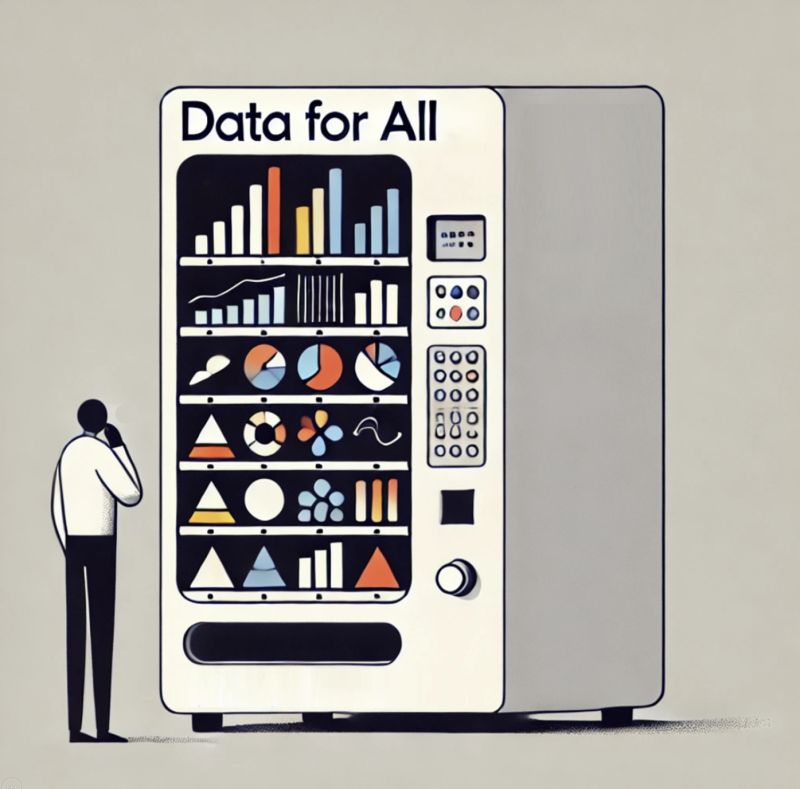"Data democratization" is a term I've been hearing more often lately. It's often touted as a panacea for creating data-driven organizations.
While making data accessible is crucial, let's take a step back and examine this concept more critically:
1️⃣ Despite its popularity, "data democratization" remains poorly defined. It's often vaguely described as "making data accessible to everyone," but the practical implications and details are rarely spelled out clearly.
2️⃣ The data value chain is far more complex than simply granting universal access: Availability doesn't guarantee usage. Usage doesn't ensure understanding. Understanding doesn't automatically translate to impact.
3️⃣ Not every employee needs to be—or can be, or should be—a data analyst. Yes, we should teach data literacy as broadly as possible, but understanding data is fundamentally different from producing analyses. It's about knowing a lot of nuance, not just having access to it.
4️⃣ Beyond the obvious concerns of data privacy and security, other risks are often overlooked, such as: a) Misinterpretation of data without understanding its context and limitations b) "Analysis paralysis" from information overload c) Challenges in maintaining long-term consistency and accuracy in a self-service environment
Don't get me wrong: Making data widely accessible is crucial for data-driven value creation. But blindly pursuing "data democratization" for the sake of becoming data-driven is like hoping that "broccoli democratization" will promote public health.
Empowering people to make informed decisions requires a lot more than simply opening the data floodgates.
So instead of latching onto buzzwords, let's advocate for thoughtful, strategic approaches to data management. True organizational intelligence comes not from a rallying cry to "democratize data", but from creating a nuanced data ecosystem that carefully considers an organization's specific needs, the nature of their data, and the potential risks involved.
